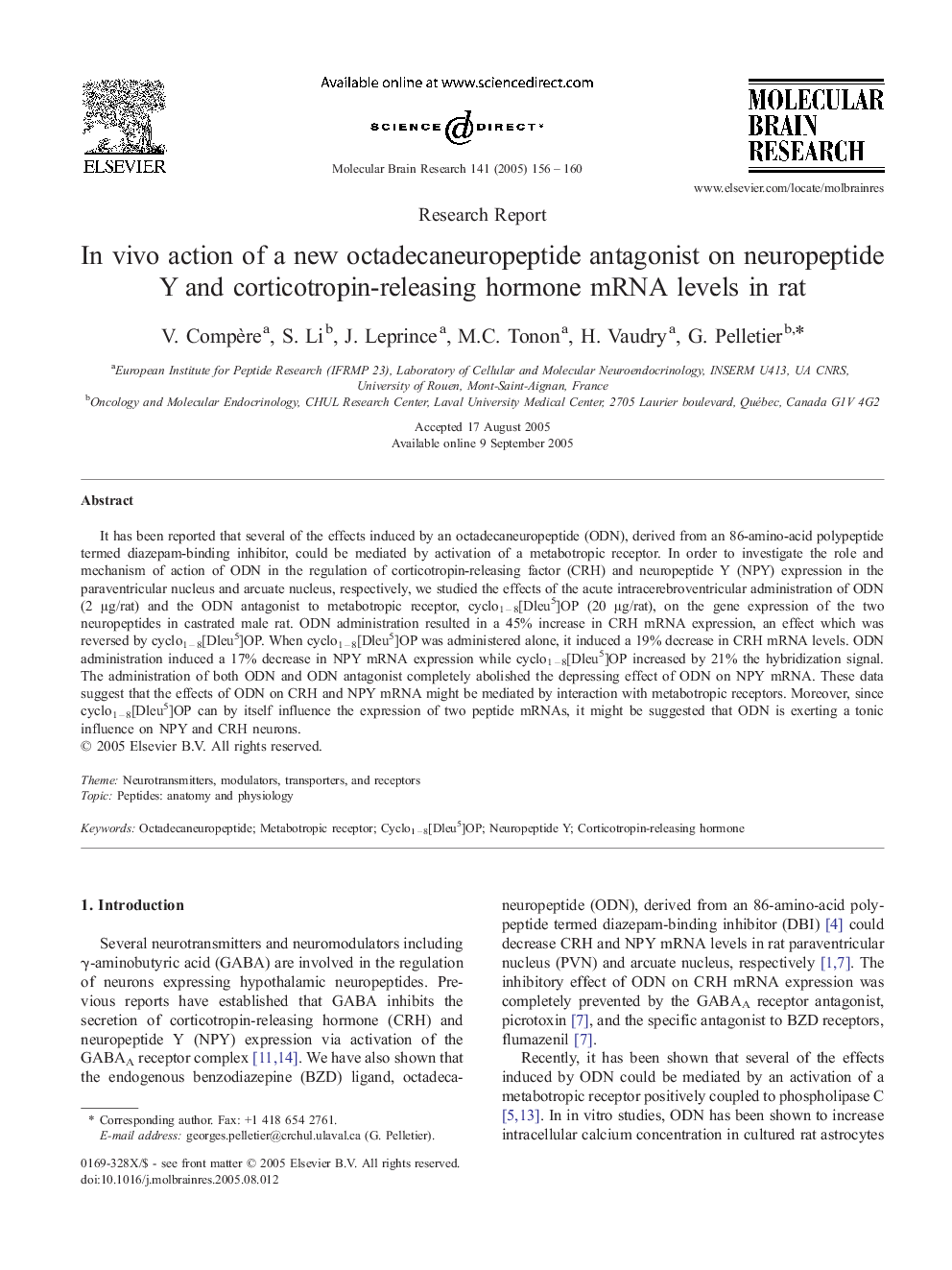| Article ID | Journal | Published Year | Pages | File Type |
|---|---|---|---|---|
| 9410533 | Molecular Brain Research | 2005 | 5 Pages |
Abstract
It has been reported that several of the effects induced by an octadecaneuropeptide (ODN), derived from an 86-amino-acid polypeptide termed diazepam-binding inhibitor, could be mediated by activation of a metabotropic receptor. In order to investigate the role and mechanism of action of ODN in the regulation of corticotropin-releasing factor (CRH) and neuropeptide Y (NPY) expression in the paraventricular nucleus and arcuate nucleus, respectively, we studied the effects of the acute intracerebroventricular administration of ODN (2 μg/rat) and the ODN antagonist to metabotropic receptor, cyclo1-8[Dleu5]OP (20 μg/rat), on the gene expression of the two neuropeptides in castrated male rat. ODN administration resulted in a 45% increase in CRH mRNA expression, an effect which was reversed by cyclo1-8[Dleu5]OP. When cyclo1-8[Dleu5]OP was administered alone, it induced a 19% decrease in CRH mRNA levels. ODN administration induced a 17% decrease in NPY mRNA expression while cyclo1-8[Dleu5]OP increased by 21% the hybridization signal. The administration of both ODN and ODN antagonist completely abolished the depressing effect of ODN on NPY mRNA. These data suggest that the effects of ODN on CRH and NPY mRNA might be mediated by interaction with metabotropic receptors. Moreover, since cyclo1-8[Dleu5]OP can by itself influence the expression of two peptide mRNAs, it might be suggested that ODN is exerting a tonic influence on NPY and CRH neurons.
Keywords
Related Topics
Life Sciences
Neuroscience
Cellular and Molecular Neuroscience
Authors
V. Compère, S. Li, J. Leprince, M.C. Tonon, H. Vaudry, G. Pelletier,
